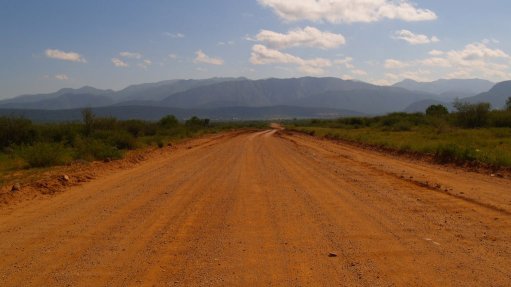Some uncertainties remain around incoming visa regime changes
Government is changing the way the South African visa system works and immigration law experts have lauded this positive step to enable more foreign skilled labour into the country, but they stress that some clarifications are still needed.
In a webinar on immigration in South Africa on April 25, law firm Cliffe Dekker Hofmeyr (CDH) told stakeholders that the historical visa system had been cumbersome for many businesses – South African and international – looking to appoint skilled foreigners into their organisations.
The Department of Home Affairs (DHA) recently introduced changes to the manner in which visas are granted in South Africa, including by introducing a point-based system. However, CDH employment law director Imraan Mahomed said the manner in which points were to be allocated still needed to be gazetted for public comment.
Moreover, the DHA is setting in place regulations for digital nomad visas by amending the country’s immigration laws. The amendments will allow foreigners earning more than R1-million a year to take out a digital nomad visa.
CDH employment law senior associate Taryn York said it was unclear whether the R1-million requirement related to gross or net salary, which would impact on the number of people that could qualify for these visas.
Immigration facilitator IBN Immigration Solutions MD Andreas Krensel explained that there were four categories related to work visas in South Africa, from short-term work visas, which were generally valid for 90 days, to longer-term visas, such as the general work visa and critical skills visa.
He pointed out that it was often difficult for smaller companies to get foreign skills into the country, despite the array of visas that could be applied for, particularly for employees at C-suite level.
He added that the DHA was also often reluctant to offer permanent residence to foreigners despite having granted long-term work visas and legislation allowing for this.
Commenting on the introduction of the digital nomad visa, Krensel said it would not be practicably implementable unless the Income Tax Act was also amended, since foreigners generally only register to pay tax after one year of employment in South Africa.
The experts were also unsure of the DHA’s capability to process new visa applications alongside those that have been backlogged for months.
Krensel pointed out that technology had made applications for passports in South Africa easier and quicker; however, the DHA had been underfunding capacity on the foreign administration side.
He added that world-class information technology systems to manage visa applications may be unaffordable to some government authorities. There were also internal management issues that stemmed from a lack of skilled decision-makers owing to corruption in recent years, as well as reluctant employees, in many instances.
In this regard, Mahomed noted that individuals were often put in a precarious position of having applied for a renewed visa before it expired, but government taking so long to process the application, that it expired.
During the renewal process, workers are legally allowed to remain in South Africa, but they are not allowed to legally continue working in South Africa once a visa expires.
Overall, the experts were encouraged by the DHA’s efforts to overhaul the visa system and have applications approved faster, but said uncertainties remain, particularly since the Draft Second Amendment of the Immigration Regulations was published before the public comment period lapsed and government subsequently withdrew the regulations for later publication.
Article Enquiry
Email Article
Save Article
Feedback
To advertise email advertising@creamermedia.co.za or click here
Press Office
Announcements
What's On
Subscribe to improve your user experience...
Option 1 (equivalent of R125 a month):
Receive a weekly copy of Creamer Media's Engineering News & Mining Weekly magazine
(print copy for those in South Africa and e-magazine for those outside of South Africa)
Receive daily email newsletters
Access to full search results
Access archive of magazine back copies
Access to Projects in Progress
Access to ONE Research Report of your choice in PDF format
Option 2 (equivalent of R375 a month):
All benefits from Option 1
PLUS
Access to Creamer Media's Research Channel Africa for ALL Research Reports, in PDF format, on various industrial and mining sectors
including Electricity; Water; Energy Transition; Hydrogen; Roads, Rail and Ports; Coal; Gold; Platinum; Battery Metals; etc.
Already a subscriber?
Forgotten your password?
Receive weekly copy of Creamer Media's Engineering News & Mining Weekly magazine (print copy for those in South Africa and e-magazine for those outside of South Africa)
➕
Recieve daily email newsletters
➕
Access to full search results
➕
Access archive of magazine back copies
➕
Access to Projects in Progress
➕
Access to ONE Research Report of your choice in PDF format
RESEARCH CHANNEL AFRICA
R4500 (equivalent of R375 a month)
SUBSCRIBEAll benefits from Option 1
➕
Access to Creamer Media's Research Channel Africa for ALL Research Reports on various industrial and mining sectors, in PDF format, including on:
Electricity
➕
Water
➕
Energy Transition
➕
Hydrogen
➕
Roads, Rail and Ports
➕
Coal
➕
Gold
➕
Platinum
➕
Battery Metals
➕
etc.
Receive all benefits from Option 1 or Option 2 delivered to numerous people at your company
➕
Multiple User names and Passwords for simultaneous log-ins
➕
Intranet integration access to all in your organisation





















